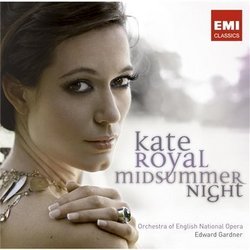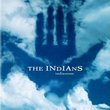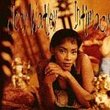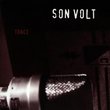| All Artists: William Alwyn, Samuel Barber, Benjamin Britten, Antonin Dvorak, Carlisle Floyd, Bernard Herrmann, Erich Wolfgang Korngold, Franz Lehar, André Messager, Kate Royal Title: Midsummer Night Members Wishing: 0 Total Copies: 0 Label: EMI Classics Original Release Date: 1/1/2009 Re-Release Date: 6/2/2009 Album Type: Enhanced Genre: Classical Style: Opera & Classical Vocal Number of Discs: 1 SwapaCD Credits: 1 UPCs: 400000015767, 5099926819228 |
Search - William Alwyn, Samuel Barber, Benjamin Britten :: Midsummer Night
 | William Alwyn, Samuel Barber, Benjamin Britten Midsummer Night Genre: Classical
|
Larger Image |
CD DetailsSimilarly Requested CDs
|
CD ReviewsExquisite Work David Cady | Jersey City, NJ USA | 06/10/2009 (5 out of 5 stars) "As young sopranos go, Kate Royal hasn't really been on my radar. I was vaguely aware of her a couple of years ago, when her first album came out, but for some reason I never got it. Listening to her stunning new disc, "Midsummer Night," I can only think, What was I waiting for? Frankly, I haven't been this excited about a singer in years. Gheorghiu, Netrebko and Dessay have dominated the (soprano) recording landscape over the past few years, but none of them, in my opinion, has released an album as impressive and solidly produced as this. (There's actual artistry in the way the tracks flow from one to the other.) As strong a stage presence as these women are, I haven't always felt that their essence (particularly Dessay's) has translated well to the recording studio. But like Renee Fleming (much of whose repertory is included here), Royal seems to have been born to record. Hers is an exquisite, expressive instrument that truly engages. I'm guilty of sometimes putting on classical music as background noise while reading, surfing the net etc. With "Midsummer Night," Royal compelled me to stop and actually "listen." A major contributing factor to the disc's success is the selection of material. These are not the usual suspects, and thank goodness for that. As much as I love Puccini, I really don't need another recording of "Mi chiamano Mimi." (Although I have no doubt Royal would sing it well.) These gems by Britten, Herrmann and Korngold, however, don't get much play, and it's a shame, given how musically sumptuous they are. How lucky for us that Royal and her conductor Edward Gardner (and EMI, for that matter) have had the courage to explore such risky, less familiar repertory. (She does sing Lehar's well-known Vilja-Lied, albeit with a disappointing - and uncharacteristic - sharp final note.) If I have any criticism of Royal, it's that she doesn't always go far enough in creating character here. The trilled "r" she uses in Floyd's "The Trees on the Mountain" is obviously not the speech pattern of a backwoods Appalachian girl; and she is far too young to be singing Barber's Vanessa. I wish, too, that "He has come" weren't presented in a truncated version. The two arias are sung magnificently, however, so why quibble? All in all, this is as exciting and successful a "recital" disc as I've ever heard. Admirable support is provided by the English National Opera Orchestra, the Crouch End Festival Chorus, and, most pleasantly, Thomas Allen in a duet from "Peter Grimes."" An emotionally gripping young singer comes into her own Santa Fe Listener | Santa Fe, NM USA | 06/02/2009 (5 out of 5 stars) "Kate Royal, a rising star in Britain, comes into her own with this fascinating recital. The selections are highly imaginative. I can't think of an opera recital since Renee Fleming's "I Want Magic" and Dawn Upshaw's "The World So Wide" that was this original. The title "Midsummer Night" doesn't announce a theme; it's taken from the first selection, an aria from Alwyn's "Miss Julie," written in a style that spookily channels Samuel Barber down to every chord and curve in the melodic line. Although we bounce from country to country, there's a predominance of velvety post-Romantic melodies from Korngold to Barber himself. Ms. Royal has the temperament and voice for this repertoire. She puts a touch of lyric poignancy into each aria; her approach is tender and vulnerable, rather reminiscent of Anna Moffo. English is a hard language to sing operatically, and Royal does well, although I lost many words in the aria from Floyd's Susannah (no Southern accent attempted). She makes an ideal Ellen Orford, even managing to sound mature. Anyone who can make this kind of emotional connection with the listener bids well to have a bright future. My only quibble is that Royal's voice can take on a wobble at loud volume, and her intonation isn't perfect on top, where the tone can be pinched, too. But Royal is so perfect in the excerpts from Britten and Walton that British listeners will rejoice to have a worthy successor to Heather Harper and Felicity Lott in that repertoire. Overall, this CD is fully the equal of the ones I mentioned from Fleming and Upshaw, which is really saying something. To top off Royal's success, the conducting and supporting singers are first rate. Here's a complete listing: Alwyn: Midsummer night (Miss Julie) Barber: Vanessa, Op. 32: Do not utter a word Britten: Embroidery aria (Peter Grimes) Thomas Allen (baritone) Tiny's song (Paul Bunyan) The Tower scene (Turn of the Screw) Dvorak: Song to the Moon (from Rusalka) Floyd: The trees on the mountains (Susannah) Hermann: I have dreamt (Wuthering Heights) Korngold: Die tote Stadt, Op. 12: Mariettas Lied 'Glück, das mir verbleib' Lehár: Viljalied (from Die lustige Witwe) Messager: Philomel from Monsieur Beaucaire Stravinsky: Le Chant du Rossignol Andrew Staples (tenor) Walton: At the haunted end of the day (Troilus and Cressida) " Terrific all around D. Steele | NY, NY | 08/04/2009 (5 out of 5 stars) "I think this is just a wonderful CD. The choice of songs is delicious. Not the same old same old though she does sing a couple of tried and true pieces. The orchestra and chorus are also remarkable adding a lot of flavor. I can't recommend it enough. It's very atmospheric as well."
|

 Track Listings (13) - Disc #1
Track Listings (13) - Disc #1





